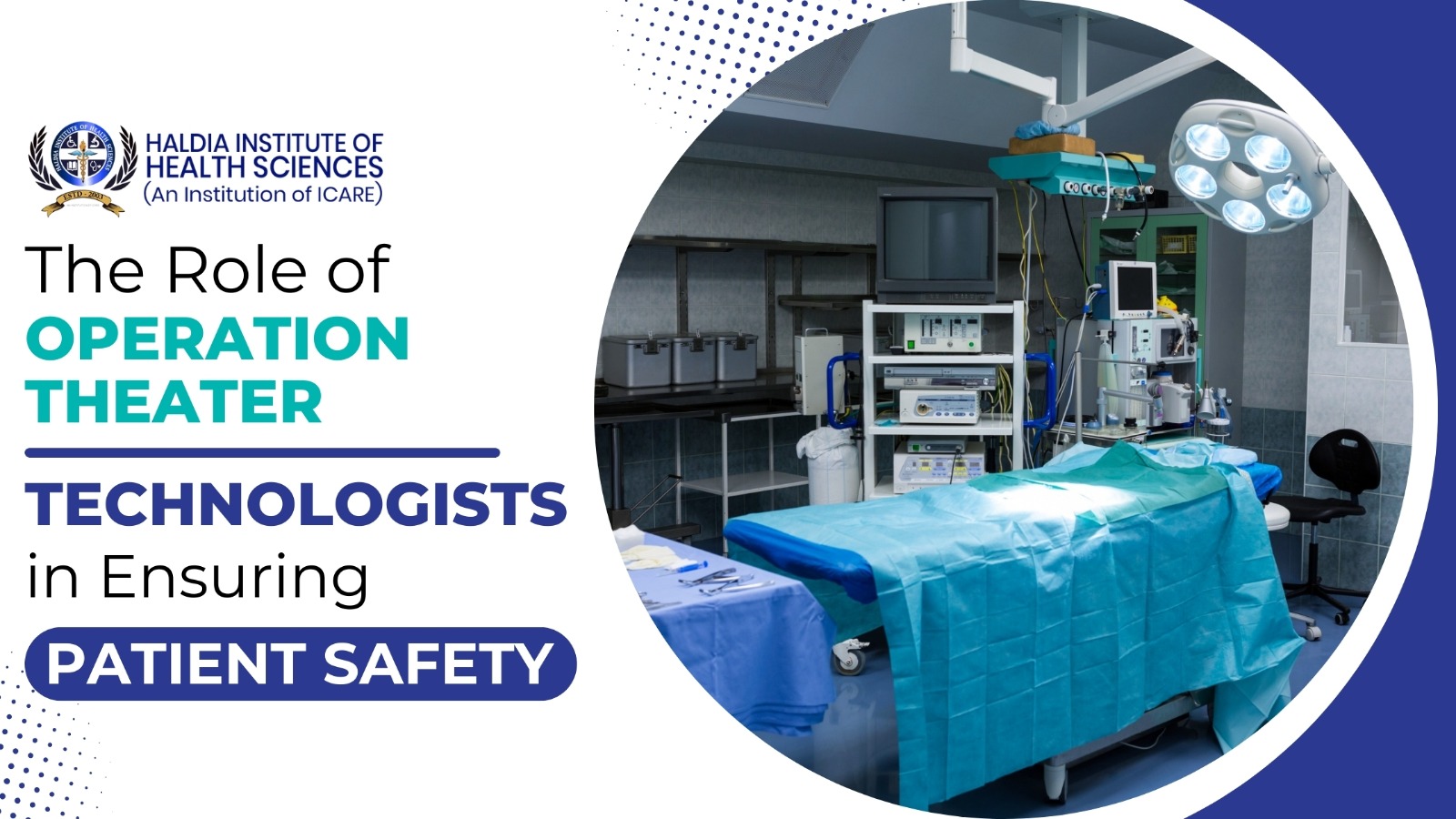Latest Notifications

Blog

The Role of Operation Theater Technologists in Ensuring Patient Safety
In the intricate and high-stakes environment of an operation theater, every role is crucial to the success of surgical procedures and the safety of patients. Among these critical roles, Operation Theater Technologists stand out for their pivotal contributions to patient safety. Recognized for offering the top paramedical course in West Bengal, Haldia Institute of Health Sciences emphasizes the indispensable role that Operation Theater Technologists play in the medical field, particularly in maintaining sterile environments, managing sophisticated surgical equipment, and implementing rigorous safety protocols.
Ensuring Sterile Environments
One of the primary responsibilities of Operation Theater Technologists is to ensure that the operation theater remains a sterile environment. This is critical in preventing postoperative infections, a leading cause of patient morbidity and extended hospital stays. Technologists are trained in the principles of asepsis and are responsible for the sterilization of all surgical instruments and equipment before and after each procedure. Their meticulous attention to detail and adherence to sterilization protocols are fundamental to minimizing the risk of infections and ensuring patient safety.
Managing Surgical Equipment
The operation theater is filled with complex and often delicate surgical equipment that requires expert handling. Operation Theater Technologists are proficient in the setup, operation, and management of this equipment, ensuring that everything is in perfect working order before the surgery begins. This includes everything from the surgical lights and operating table to the electrocautery equipment and anesthesia machines. By ensuring that all equipment functions correctly, technologists help prevent intraoperative complications, thereby safeguarding patient health and safety.
Implementing Safety Protocols
Safety protocols are at the heart of operation theater procedures, and Operation Theater Technologists are key players in their implementation. These protocols cover a broad range of practices, from the correct labeling and handling of specimens to the enforcement of strict hand hygiene and the use of personal protective equipment (PPE). Technologists also play a vital role in the surgical team's communication, ensuring that all members are aware of and adhere to these safety measures. Their vigilance and proactive approach to safety protocol adherence are crucial in creating a safe surgical environment.
The Role in Emergency Preparedness
Beyond their daily responsibilities, Operation Theater Technologists are also trained in emergency preparedness. They are equipped with the knowledge and skills to respond swiftly and efficiently to any unforeseen event during surgery, from equipment malfunctions to sudden patient complications. Their ability to remain calm under pressure and take decisive action contributes significantly to the overall safety and success of surgical procedures.
Contribution to Continuous Improvement
Operation Theater Technologists are not just participants in the surgical process; they are also advocates for continuous improvement in patient safety and surgical practices. By providing feedback on equipment performance, participating in debriefings, and staying updated on the latest in surgical technology and safety protocols, they contribute to the ongoing enhancement of operation theater procedures and patient care standards.
Conclusion
The role of Operation Theater Technologists in ensuring patient safety is both profound and multifaceted. Through their expertise in maintaining sterile environments, managing surgical equipment, and implementing safety protocols, they provide an essential service that underpins the success of surgical procedures and the wellbeing of patients. At Haldia Institute of Health Sciences, recognized for offering the top paramedical course in West Bengal, we are committed to training the next generation of Operation Theater Technologists, equipping them with the knowledge, skills, and dedication needed to excel in this vital healthcare role.

